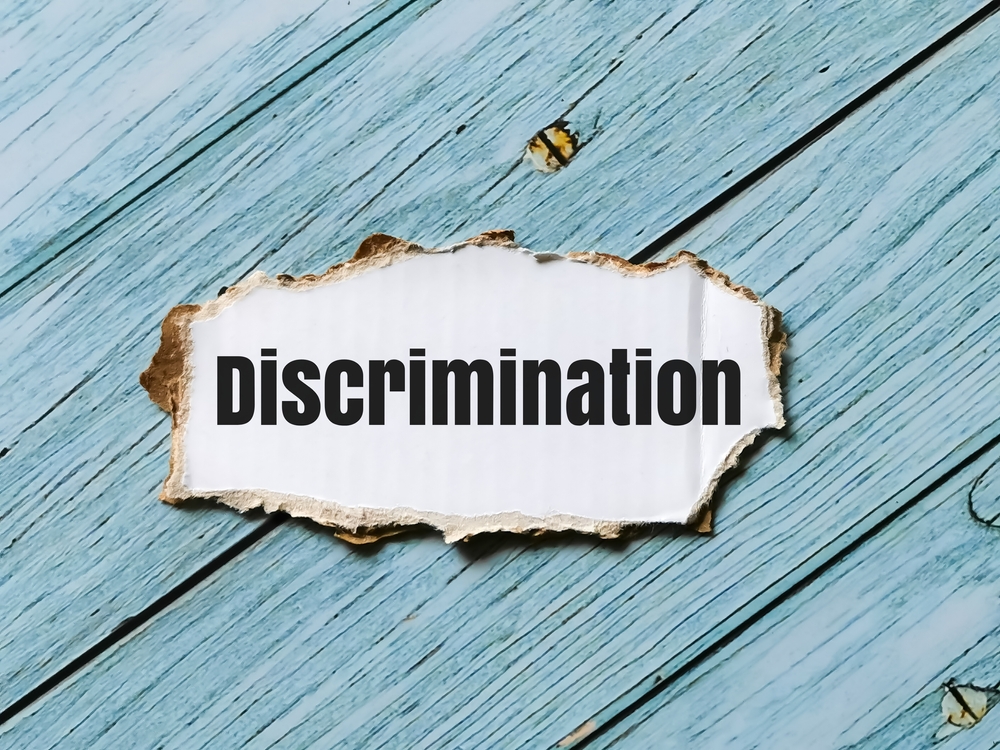Feeling like you are being treated unfairly at work because of your race can be a lonely and stressful experience. You might second-guess yourself, wondering if you are imagining things or overreacting. But your feelings are valid, and knowing you have rights is important. This guide explains workplace racial discrimination and outlines your options for addressing it.
The most important thing to remember is that you don’t have to go through this alone. An experienced San Diego Discrimination lawyer can be your strongest supporter and guide you every step of the way.
Schedule a Free Case Evaluation
What Is Racial Discrimination in the Workplace?
Workplace racial discrimination is when an employer treats you differently or unfairly because of your race or because of physical traits associated with your race (like your hair texture, skin color, or facial features). This kind of unfair treatment is illegal. Laws at both the federal and state level are in place to protect you.
The main idea behind these laws is that everyone should have an equal chance to succeed at work. Employers should base important decisions like hiring, firing, promotions, and pay on your skills and job performance, not your race. For example, some state laws declare a public policy that aims to protect and safeguard the right and opportunity of all persons to seek, obtain, and hold employment without discrimination.
These laws are very clear and list specific unlawful employment practices. It is against the law for an employer to discriminate against you in any part of employment—from hiring and firing to promotions and pay—because of your race. The workplace prohibits discrimination based on race, color, or ancestry. Discrimination breaks the fundamental principle of judging people based on merit.
There are two main ways that racial discrimination can show up at work: the obvious kind and the subtle kind.
Obvious (Direct) Discrimination

This is the type of discrimination that is often easier to spot. It’s when someone at your job makes a negative decision or comment that is clearly about your race.
Here are some examples of obvious racial discrimination:
- Racist Jokes or Slurs: A coworker or manager constantly tells racist jokes, uses racial slurs, or makes offensive comments about your race or a particular racial group.
- Unfair Hiring: You apply for a job you are qualified for, but a person of another race who is less qualified gets the job. Someone might even suggest that your race caused them not to hire you.
- Unequal Pay: You find that coworkers of a different race with the same job title and experience earn more than you.
- Blocked Promotions: Your employer repeatedly passes you over for promotions that go to less-qualified employees of a different race. When you ask for feedback, the reasons are vague or don’t make sense.
- Wrongful Termination: Your employer fires you for a small mistake while employees of other races make similar mistakes and keep their jobs.
- Unfair Discipline: You are written up or disciplined for things that other employees of different races do all the time without any consequences.
This kind of direct discrimination is a clear violation of your rights. If you are experiencing this, know that the law is on your side. Speaking with a workplace discrimination lawyer clarifies your options and strengthens your protection.
Subtle (Indirect) Discrimination
Subtle discrimination is often harder to prove but is just as harmful. It’s not always a single, obvious event. Instead, it can be a pattern of unfair treatment that, over time, creates a hostile work environment. This is a workplace where discrimination is so widespread and ongoing that it makes it difficult for you to do your job.
Here are some examples of subtle racial discrimination:
- Being Left Out: Your employer regularly excludes you from important meetings, team lunches, or social events where work-related information is shared.
- Code Words or Coded Language: Your boss or coworkers use neutral words that often negatively describe people of your race. For example, they might call you “aggressive” or “not a good fit” for the company culture.
- Stricter Scrutiny: Your work is checked more closely and criticized more harshly than your colleagues of other races.
- Less Desirable Assignments: Your manager consistently gives you the worst assignments, the least important projects, or tasks no one else wants to do.
- Assumptions and Stereotypes: Your manager assumes you have certain skills or interests based on racial stereotypes rather than asking about your abilities and goals.
- Lack of Mentorship: You notice that your employer gives employees of other races mentors and more growth opportunities, leaving you to figure things out independently.
These subtle actions can make you feel isolated, undervalued, and stressed. Even if no one says an openly racist word, these patterns of behavior can still be a form of illegal discrimination. An employment lawyer identifies these patterns and builds a discrimination claim even when the evidence isn’t obvious.
Steps to Take If You Believe You’re Facing Discrimination
If you believe you are facing racial discrimination, it’s easy to feel powerless, but you have more power than you think. Taking clear, deliberate steps protects you and holds your employer accountable. The safest way to handle this process is with guidance from an employment lawyer who can offer advice tailored to your specific situation.
Step 1: Document Everything

This is one of the most important things you can do. Good records are powerful evidence. If you decide to take legal action, a detailed log of what happened can make all the difference.
- What to Write Down: For every incident, write down the date, the time, and where it happened. Write down who was involved, including anyone who saw or heard what happened. Describe exactly what was said or done. Use direct quotes if you can remember them. Also, write down how it made you feel and affected your ability to do your job.
- Keep a Private Log: Do not use a company computer or journal to keep your notes. Keep a private journal at home or use a personal email account to send notes to yourself. This keeps your information confidential and safe from being deleted by your employer.
- Save Emails and Messages: If you have emails, text messages, or any other written communication that shows discrimination, save them. You can forward them to your email address or print them out and keep them in a safe place at home.
Detailed records will be very helpful whether you report the issue internally or file a discrimination claim with a government agency. An employment lawyer can review your records and tell you if you have a strong case.
Step 2: Review Your Company’s Policies
Most companies have an employee handbook that outlines the process for reporting harassment or discrimination. Read this section carefully. It will tell you who you should report your concerns to—it might be your direct manager, a supervisor, or the Human Resources (HR) department.
Understanding your company’s official procedure is important. If you later need legal action, showing that you tried to follow the company’s rules can strengthen your case. However, many people feel scared to report discrimination internally, and that’s understandable. This is another reason why talking to an employment lawyer early on is so helpful. They can advise you on whether reporting internally is the right move for you and how to do it in a way that protects you from retaliation.
Step 3: Report the Discrimination Internally (If You Feel Safe)
If you feel safe enough, you can report the discrimination to the person or department listed in your employee handbook.
- Put it in Writing: When you make your report, it’s best to do it in writing, like in an email. This creates a record that you officially notified the company about the problem. In your email, be professional and stick to the facts. Describe the discriminatory behavior, mention the dates it occurred, and state that you believe it is a form of racial discrimination that is creating a hostile work environment.
- What to Expect: Once you report it, your employer has a legal duty to investigate your complaint and take action to stop the discrimination. A proper investigation should be fair, timely, and thorough. However, sometimes companies don’t take these complaints seriously, or their investigation is one-sided.
If your employer ignores your complaint, dismisses your concerns, or if the discrimination continues after you report it, you should immediately contact an employment lawyer. A lawyer communicates directly with your employer to ensure they take your rights seriously.
Step 4: The Power of Legal Guidance
You can and should contact an employment lawyer at any point in this process. You can take action before your employer fires you or the situation becomes unbearable. The earlier you get legal advice, the better.
An employment workplace discrimination lawyer can:
- Listen to Your Story: They can provide a safe and confidential space for you to share what has been happening.
- Help You Understand Your Rights: A lawyer can explain the laws in simple terms and tell you if what you are experiencing is illegal discrimination.
- Guide Your Documentation: They can give you advice on what specific details to record to build the strongest possible case.
- Help You Report Internally: A lawyer writes a formal complaint to HR that is clear, professional, and legally sound.
- Protect You from Retaliation: It is illegal for your employer to punish you for reporting discrimination. This is called retaliation. If your employer cuts your hours, demotes you, or fires you after you complain, an employment lawyer can take immediate action to protect you.
- Communicate with Your Employer: Having a lawyer communicate with your employer strongly conveys that you are serious about protecting your rights.
Finding the right employment lawyer is about finding someone who listens to you, believes in you, and has the experience to fight for you.
Step 5: Filing a Formal Complaint with a Government Agency
If reporting the discrimination internally doesn’t solve the problem, or if you are uncomfortable reporting it, your next step is to file a formal complaint with a government agency. These agencies are responsible for enforcing anti-discrimination laws.
- The EEOC: The U.S. Equal Employment Opportunity Commission (EEOC) handles workplace discrimination claims at the federal level. According to the EEOC, it is “unlawful to discriminate against any employee or applicant for employment because of race or color regarding hiring, termination, promotion, compensation, job2 training, or any other term, condition, or privilege of employment.” The EEOC has offices nationwide and a process for filing a discrimination claim.
- State Agencies: Many states also have civil rights agencies that handle discrimination claims. These agencies often have broad definitions of discrimination—for example, some state laws define racial discrimination based on international conventions, making the protections very strong. These state agencies often work with the EEOC. Here is an example of how to file a formal complaint on the state level.
There are strict deadlines for filing a discrimination claim, sometimes as short as 180 days from the date the discrimination occurred. This is another critical reason you should not wait to talk to an employment lawyer. A lawyer files all paperwork correctly and on time to protect your right to seek justice.
Why an Employment Lawyer Is Your Best Ally

Going through a racial discrimination case is tough. It can be emotionally draining and confusing. It can feel impossible to handle it alone while dealing with the stress of a hostile work environment. A workplace discrimination attorney is your advocate and your protector.
- They Know the Law: Anti-discrimination laws often involve complex rules and procedures. An experienced employment lawyer understands the law inside and out and knows how to use it to protect you.
- They Know How to Build a Case: They can look at your evidence, identify the strengths of your case, and gather more information to support your claim.
- They Can Negotiate for You: Parties resolve many discrimination cases outside court. A skilled lawyer can negotiate with your employer for a fair settlement, including back pay, compensation for emotional distress, or even getting your job back.
- They Can Represent You in Court: If your case goes to court, your lawyer will fight for you.
You do not have to face this alone. Taking the step to call an employment attorney is a sign of strength. Taking control of your situation and demanding to be treated with dignity and respect at work means standing up for your rights.
Reach Out to an Experienced Employment Lawyer
No one should have to endure a hostile work environment or be denied opportunities because of their race. If you feel that you are a victim of racial discrimination, trust your instincts. The law is on your side, and some people can help.
Start by documenting everything you can, and then, most importantly, reach out to an experienced San Diego employment attorney. They can provide the guidance and support you need to protect your rights and achieve a just outcome. You have the right to a workplace free from discrimination; taking action is the first step toward making that a reality.





